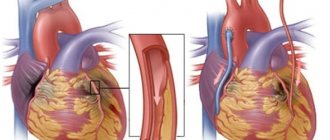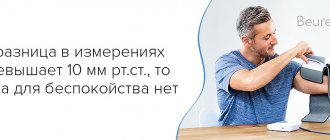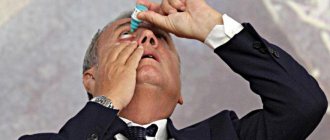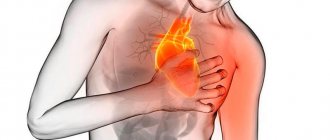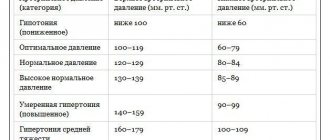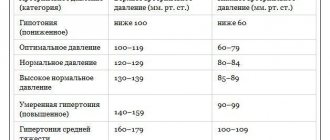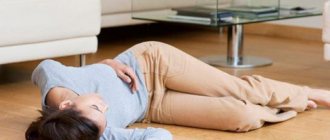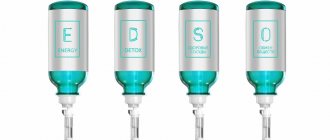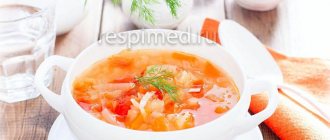General rules
As a rule, with coronary heart disease , the process of narrowing the lumen of the artery by cholesterol plaque is irreversible and increasing. Restoring the narrowed lumen of an artery with an atherosclerotic plaque using medication does not give the desired effect. Therefore, in most cases with severe stenosis , surgical methods of treating coronary artery disease (bypass surgery, stenting) are the only effective ones to normalize blood circulation in the heart muscle, prevent the threat of myocardial infarction and restore a person’s ability to work.
The operations of coronary artery bypass grafting (CABG) and stenting of the coronary arteries are quite complex and in order to obtain a lasting postoperative effect it is necessary to lead a certain way of life. In particular, diet after heart surgery is the most important component of the treatment process during the rehabilitation period. Moreover, properly organized nutrition after heart surgery allows you to avoid the return of angina and repeated vascular operations.
Nutritional risk factors for the continued development of atherosclerosis and coronary artery disease and, accordingly, repeated vascular operations include:
- high energy value of the diet, contributing to the development of obesity ;
- deficiency of polyunsaturated fatty acids, which normalize cholesterol and reduce its deposition on the walls of blood vessels;
- excess content in the diet of fats containing saturated fatty acids (animal and confectionery fats);
- excessive consumption of cholesterol with a lack of foods in the diet that normalize the metabolism of cholesterol and fats;
- excessive consumption of easily digestible refined carbohydrates (sugar and products containing it);
- increased consumption of table salt, which reduces the activity of fat metabolism enzymes;
- insufficient content in the diet of foods rich in fiber - wholemeal bread, vegetables, cereals, fruits, berries, which reduces the process of removing cholesterol through the intestines;
- excessive consumption of animal proteins, which disrupts vascular permeability, blood clotting and negatively affects fat metabolism;
- insufficient consumption of magnesium, zinc, potassium, iodine, vitamins A , C , B6 , PP , carotene , which slows down the breakdown of cholesterol and disrupts lipid metabolism;
- improper diet with rare and heavy meals.
Accordingly, the general principles of dietary nutrition after CABG and vascular stenosis are to reduce the energy value of the daily diet to 2400-2600 kcal with the consumption of 70-90 g of proteins (animal proteins are reduced to 50%), 80 g of fats (40% vegetable) and 300- 350 g of carbohydrates (with a decrease in the intake of easily digestible carbohydrates).
The protein content in the diet should be no more than 1.0-1.2 g per 1 kg of body weight and is ensured by including fish, low-fat dairy products, seafood in the diet, moderate consumption of lean meat and meat products and limiting the consumption of egg yolks and offal.
Foods rich in extractives and cholesterol are limited in the diet. Table salt is reduced to 5 mg/day. Animal and cooking fats are completely excluded. Increase foods containing dietary fiber (vegetables, cereals, fruits), vitamins , especially C and E and microelements (potassium, iodine, magnesium), which are rich in seafood (squid, seaweed, mussels, shrimp) in the form of independent dishes or as part salads
The consumption of “white” varieties of fish is recommended, since fatty acids from fish fats improve cholesterol metabolism and normalize blood clotting properties, reducing the risk of blood clots . The volume of free fluid is limited to 1.2-1.5 l/day.
Diet after coronary artery bypass surgery
The purpose of dietary nutrition after cardiac coronary artery bypass surgery is primarily to limit the intake of animal and culinary fats containing polyunsaturated fatty acids, low-density lipoproteins, cholesterol and triglycerides, which form cholesterol plaques in the lumen of blood vessels. All fried foods and especially red fatty meat and fatty fish are excluded from the diet. Cold-pressed olive oil is allowed from vegetable fats.
Of fish products, the diet should include “white” varieties of fish (cod, hake, flounder), as well as types of fish with a high content of fish oil - tuna, herring, salmon, sardine. Nutrition after bypass surgery should include a high content of fruits and vegetables, both fresh and frozen, and freshly squeezed juices.
folic acid , is useful for maintaining cardiovascular activity . It is recommended to include in your diet foods containing iodine - shrimp, mussels, seaweed, squid, as well as wholemeal bread, yeast-free bread, whole grains, and cereals.
The diet after cardiac bypass surgery includes 4-5 meals a day, excluding hot or cold foods. Salt in minimal quantities. Portions should not be plentiful. Requirements for culinary processing of products provide for the replacement of deep frying in animal fats with boiling, stewing, and steaming. The volume of free fluid is no more than 1-1.2 l/day.
Diet after cardiac stenting
Cardiac stenting, although it is a minimally invasive surgical method with a relatively short recovery period for the patient, also requires adherence to an anti-cholesterol diet for the rest of his life. Ignoring dietary nutrition leads to the continued development of atherosclerosis of the coronary vessels and the formation of new plaques, narrowing their lumen.
In principle, nutrition after stenting of cardiac vessels is similar to nutrition after vascular bypass surgery. The basis of the diet should be foods that prevent the development of atherosclerosis: fish (at least 2 times a week), lean meat and poultry, virgin vegetable oils, fresh vegetables/fruits high in fiber, seafood, wholemeal bread, whole grain products , nuts, low-fat dairy products.
Polyunsaturated fatty acids ( omega-3 ) contained in fish oil and vegetable oils reduce the content of triglycerides and low-density lipoproteins in the blood and increase the content of beneficial high-density lipoproteins. Fiber from plant foods effectively binds and removes cholesterol from the intestines.
Principles of a balanced diet after bariatric surgery
It is important to remember that bariatric surgery is surgery on the gastrointestinal tract. It changes the functioning conditions of the digestive system, and nutrition after surgery has some features. Your doctor will provide you with an individual diet plan.
General recommendations to follow:
- Protein is the main component of the diet. You must consume at least 60 g of protein per day. It is found in sufficient quantities in meat (turkey breast, chicken, fish fillet, beef, pork), low-fat cheese, cottage cheese, eggs, and peanut butter.
- Don't skip meals. Frequent, small meals will prevent stomach overfilling and improve metabolic processes.
- Eat only at the dinner table, do not rush.
- Place small portions on plates. Cut food into small pieces and chew thoroughly and slowly. Use small dishes and baby spoons to avoid overeating. Stop as soon as you feel full.
- Drink more fluids throughout the day (6-8 cups). Avoid carbonated, high-calorie drinks and caffeine. Drink at intervals of 30 minutes before or after meals, this will help prevent nausea and vomiting.
- Take a daily vitamin and mineral supplement (multivitamin, calcium citrate), but check with your doctor first. Additionally, vitamins B12, D, and iron may be required.
Remember that a balanced diet after bariatric surgery is not just a diet, but a new way of life. In order to lose weight, healthy habits must become an integral part of your life.
Authorized Products
To reduce cholesterol levels and minimize the risk of developing atherosclerosis and angina, it is necessary to include foods containing polyunsaturated fatty acids, complex carbohydrates and fiber in the diet. The menu should include soups made with vegetable broth with the addition of cereals (beetroot soup, cabbage soup, borscht) and potatoes. For second courses, it is recommended to use lean varieties of red meat (veal, lean beef) and poultry (turkey, chicken), and rabbit. Low-fat varieties of white fish (cod, hake, tuna, flounder) and seafood (mussels, squid, shrimp, seaweed) are extremely healthy. As for fats, the use of vegetable oils (sunflower, olive), preferably cold-pressed, is recommended.
The diet should include dairy products (low-fat kefir, fermented baked milk) and low-fat cheeses. Be sure to include baked goods made from wholemeal flour, yeast-free bread, whole grains, oatmeal cookies and porridge in your diet. You should increase the amount of fruits and vegetables consumed in any form and method of culinary processing. The diet should include freshly squeezed juices from berries (blackberries, strawberries, blueberries) and fruits, almonds, walnuts. Fresh garden herbs and cereal dishes are a must. It is useful to use decoctions of rose hips and wheat bran to improve blood circulation.
Table of permitted products
| Proteins, g | Fats, g | Carbohydrates, g | Calories, kcal | |
Vegetables and greens | ||||
| eggplant | 1,2 | 0,1 | 4,5 | 24 |
| beans | 6,0 | 0,1 | 8,5 | 57 |
| zucchini | 0,6 | 0,3 | 4,6 | 24 |
| cabbage | 1,8 | 0,1 | 4,7 | 27 |
| broccoli | 3,0 | 0,4 | 5,2 | 28 |
| Brussels sprouts | 4,8 | 0,0 | 8,0 | 43 |
| cauliflower | 2,5 | 0,3 | 5,4 | 30 |
| green onion | 1,3 | 0,0 | 4,6 | 19 |
| bulb onions | 1,4 | 0,0 | 10,4 | 41 |
| cucumbers | 0,8 | 0,1 | 2,8 | 15 |
| squash | 0,6 | 0,1 | 4,3 | 19 |
| salad pepper | 1,3 | 0,0 | 5,3 | 27 |
| parsley | 3,7 | 0,4 | 7,6 | 47 |
| salad | 1,2 | 0,3 | 1,3 | 12 |
| beet | 1,5 | 0,1 | 8,8 | 40 |
| celery | 0,9 | 0,1 | 2,1 | 12 |
| soybeans | 34,9 | 17,3 | 17,3 | 381 |
| asparagus | 1,9 | 0,1 | 3,1 | 20 |
| tomatoes | 0,6 | 0,2 | 4,2 | 20 |
| Jerusalem artichoke | 2,1 | 0,1 | 12,8 | 61 |
| pumpkin | 1,3 | 0,3 | 7,7 | 28 |
| dill | 2,5 | 0,5 | 6,3 | 38 |
| beans | 7,8 | 0,5 | 21,5 | 123 |
| garlic | 6,5 | 0,5 | 29,9 | 143 |
| lentils | 24,0 | 1,5 | 42,7 | 284 |
Fruits | ||||
| avocado | 2,0 | 20,0 | 7,4 | 208 |
| oranges | 0,9 | 0,2 | 8,1 | 36 |
| grapefruit | 0,7 | 0,2 | 6,5 | 29 |
| pears | 0,4 | 0,3 | 10,9 | 42 |
| lemons | 0,9 | 0,1 | 3,0 | 16 |
| mango | 0,5 | 0,3 | 11,5 | 67 |
| tangerines | 0,8 | 0,2 | 7,5 | 33 |
| nectarine | 0,9 | 0,2 | 11,8 | 48 |
| peaches | 0,9 | 0,1 | 11,3 | 46 |
| apples | 0,4 | 0,4 | 9,8 | 47 |
Berries | ||||
| gooseberry | 0,7 | 0,2 | 12,0 | 43 |
| Red currants | 0,6 | 0,2 | 7,7 | 43 |
| black currant | 1,0 | 0,4 | 7,3 | 44 |
Nuts and dried fruits | ||||
| nuts | 15,0 | 40,0 | 20,0 | 500 |
| flax seeds | 18,3 | 42,2 | 28,9 | 534 |
| fenugreek seeds | 23,0 | 6,4 | 58,3 | 323 |
| sunflower seeds | 20,7 | 52,9 | 3,4 | 578 |
Cereals and porridges | ||||
| buckwheat (kernel) | 12,6 | 3,3 | 62,1 | 313 |
| oat groats | 12,3 | 6,1 | 59,5 | 342 |
| cereals | 11,9 | 7,2 | 69,3 | 366 |
| wheat bran | 15,1 | 3,8 | 53,6 | 296 |
Dairy | ||||
| kefir 0% | 3,0 | 0,1 | 3,8 | 30 |
| kefir 1% | 2,8 | 1,0 | 4,0 | 40 |
Cheeses and cottage cheese | ||||
| cottage cheese 0.6% (low fat) | 18,0 | 0,6 | 1,8 | 88 |
| curd tofu | 8,1 | 4,2 | 0,6 | 73 |
Meat products | ||||
| beef | 18,9 | 19,4 | 0,0 | 187 |
Bird | ||||
| chicken fillet | 23,1 | 1,2 | 0,0 | 110 |
| turkey | 19,2 | 0,7 | 0,0 | 84 |
Eggs | ||||
| eggs | 12,7 | 10,9 | 0,7 | 157 |
Fish and seafood | ||||
| fish | 18,5 | 4,9 | 0,0 | 136 |
| seaweed | 0,8 | 5,1 | 0,0 | 49 |
Oils and fats | ||||
| grape seed oil | 0,0 | 99,9 | 0,0 | 899 |
| linseed oil | 0,0 | 99,8 | 0,0 | 898 |
| olive oil | 0,0 | 99,8 | 0,0 | 898 |
| sunflower oil | 0,0 | 99,9 | 0,0 | 899 |
Non-alcoholic drinks | ||||
| mineral water | 0,0 | 0,0 | 0,0 | — |
| green tea | 0,0 | 0,0 | 0,0 | — |
Juices and compotes | ||||
| cranberry jelly | 0,0 | 0,0 | 13,0 | 53 |
| rose hip juice | 0,1 | 0,0 | 17,6 | 70 |
| * data is per 100 g of product | ||||
Foods to eat in moderation
- milk and fermented milk products of normal fat content, and preferably homemade. Do not use low-fat dairy products!!!
- boiled potatoes, preferably steamed
- mature legume grains (peas, beans, lentils)
- whole grain cereals (no more than 6 tablespoons per serving). Eliminate semolina, white rice, instant cereals
- vegetable, meat and fish soups cooked in a second broth
- pasta cooked al dente (durum wheat only) (no more than 6 tablespoons per serving)
- bread and bakery products - not rich (preferably coarse or whole grain bread, 1-2 pieces per day)
- fruits (except those specified in the “exclude” paragraph)
- nuts, seeds
- eggs
“Moderate amount” means half of your usual serving. Food should be as natural as possible, “roughly cooked” - it is better to undercook than to overcook.
Fully or partially limited products
All types of fatty meat, bacon, lard, any sausages, pates and meat pastes, as well as offal - liver, heart, brains - should be excluded from the diet. Broths containing meat, mushrooms and fish are prohibited. All fried foods, animal and cooking fats, mayonnaise and margarine are completely excluded from the diet. The consumption of butter, high-fat dairy products (sour cream, cream), and cheese is limited. Consumption of chicken eggs is limited to 3-4 eggs per week. You should not include fish and crustacean caviar, fatty fish (sprats, sardines) in your diet.
From the list of products you need to cross out white bread, confectionery, ice cream, carbonated drinks, as well as sugar and products containing it, honey. It is recommended to replace sweets with dried fruits. The restriction also applies to products with a high salt content (pickles, canned food, smoked meats). After vascular surgery, the consumption of chicken egg yolks, products made from butter/puff pastry, rice, semolina, pasta, as well as products containing a lot of caffeine (chocolate, strong tea, coffee, cocoa), which cause vasospasm and increase heart disease, is completely prohibited. activity. The consumption of sweet carbonated drinks, raisins, grapes, various spices and all types of alcoholic drinks is not allowed.
Table of prohibited products
| Proteins, g | Fats, g | Carbohydrates, g | Calories, kcal | |
Fruits | ||||
| bananas | 1,5 | 0,2 | 21,8 | 95 |
Berries | ||||
| grape | 0,6 | 0,2 | 16,8 | 65 |
Nuts and dried fruits | ||||
| raisin | 2,9 | 0,6 | 66,0 | 264 |
Cereals and porridges | ||||
| semolina | 10,3 | 1,0 | 73,3 | 328 |
| white rice | 6,7 | 0,7 | 78,9 | 344 |
Flour and pasta | ||||
| pasta | 10,4 | 1,1 | 69,7 | 337 |
Bakery products | ||||
| bagels | 16,0 | 1,0 | 70,0 | 336 |
| bagels | 16,0 | 1,0 | 70,0 | 336 |
| crackers | 11,2 | 1,4 | 72,2 | 331 |
Confectionery | ||||
| jam | 0,3 | 0,2 | 63,0 | 263 |
| jam | 0,3 | 0,1 | 56,0 | 238 |
| candies | 4,3 | 19,8 | 67,5 | 453 |
| pastry cream | 0,2 | 26,0 | 16,5 | 300 |
Ice cream | ||||
| ice cream | 3,7 | 6,9 | 22,1 | 189 |
Cakes | ||||
| cake | 4,4 | 23,4 | 45,2 | 407 |
Chocolate | ||||
| chocolate | 5,4 | 35,3 | 56,5 | 544 |
Raw materials and seasonings | ||||
| ketchup | 1,8 | 1,0 | 22,2 | 93 |
| mayonnaise | 2,4 | 67,0 | 3,9 | 627 |
| honey | 0,8 | 0,0 | 81,5 | 329 |
Dairy | ||||
| cream | 2,8 | 20,0 | 3,7 | 205 |
| sour cream 30% | 2,4 | 30,0 | 3,1 | 294 |
| sour cream 40% (fat) | 2,4 | 40,0 | 2,6 | 381 |
Cheeses and cottage cheese | ||||
| cheese | 24,1 | 29,5 | 0,3 | 363 |
| cottage cheese 18% (fat) | 14,0 | 18,0 | 2,8 | 232 |
Meat products | ||||
| pork | 16,0 | 21,6 | 0,0 | 259 |
| pork liver | 18,8 | 3,6 | 0,0 | 108 |
| pork kidneys | 13,0 | 3,1 | 0,0 | 80 |
| pork fat | 1,4 | 92,8 | 0,0 | 841 |
| salo | 2,4 | 89,0 | 0,0 | 797 |
| beef liver | 17,4 | 3,1 | 0,0 | 98 |
| beef kidneys | 12,5 | 1,8 | 0,0 | 66 |
| beef brains | 9,5 | 9,5 | 0,0 | 124 |
| mutton | 15,6 | 16,3 | 0,0 | 209 |
Sausages | ||||
| smoked sausage | 16,2 | 44,6 | 0,0 | 466 |
| smoked sausage | 9,9 | 63,2 | 0,3 | 608 |
| sausages | 10,1 | 31,6 | 1,9 | 332 |
| sausages | 12,3 | 25,3 | 0,0 | 277 |
Bird | ||||
| smoked chicken | 27,5 | 8,2 | 0,0 | 184 |
| duck | 16,5 | 61,2 | 0,0 | 346 |
| smoked duck | 19,0 | 28,4 | 0,0 | 337 |
| goose | 16,1 | 33,3 | 0,0 | 364 |
Eggs | ||||
| chicken eggs (yolk) | 16,2 | 31,2 | 1,0 | 352 |
Fish and seafood | ||||
| smoked fish | 26,8 | 9,9 | 0,0 | 196 |
| salted fish | 19,2 | 2,0 | 0,0 | 190 |
| Red caviar | 32,0 | 15,0 | 0,0 | 263 |
| black caviar | 28,0 | 9,7 | 0,0 | 203 |
| squid | 21,2 | 2,8 | 2,0 | 122 |
| salmon | 19,8 | 6,3 | 0,0 | 142 |
| sturgeon | 16,4 | 10,9 | 0,0 | 163 |
| canned fish | 17,5 | 2,0 | 0,0 | 88 |
| semi-finished fish products | 12,5 | 6,7 | 14,7 | 209 |
| sardine | 20,6 | 9,6 | — | 169 |
| mackerel | 18,0 | 13,2 | 0,0 | 191 |
| cod (liver in oil) | 4,2 | 65,7 | 1,2 | 613 |
Oils and fats | ||||
| butter | 0,5 | 82,5 | 0,8 | 748 |
| creamy margarine | 0,5 | 82,0 | 0,0 | 745 |
| coconut oil | 0,0 | 99,9 | 0,0 | 899 |
| palm oil | 0,0 | 99,9 | 0,0 | 899 |
| rendered beef fat | 0,0 | 99,7 | 0,0 | 897 |
| cooking fat | 0,0 | 99,7 | 0,0 | 897 |
| rendered pork fat | 0,0 | 99,6 | 0,0 | 896 |
Alcoholic drinks | ||||
| white dessert wine 16% | 0,5 | 0,0 | 16,0 | 153 |
| dry white wine | 0,1 | 0,0 | 0,6 | 66 |
| vodka | 0,0 | 0,0 | 0,1 | 235 |
| cognac | 0,0 | 0,0 | 0,1 | 239 |
| liquor | 0,3 | 1,1 | 17,2 | 242 |
| beer | 0,3 | 0,0 | 4,6 | 42 |
Non-alcoholic drinks | ||||
| cola | 0,0 | 0,0 | 10,4 | 42 |
| black coffee | 0,2 | 0,0 | 0,3 | 2 |
| Pepsi | 0,0 | 0,0 | 8,7 | 38 |
| sprite | 0,1 | 0,0 | 7,0 | 29 |
| tonic | 0,0 | 0,0 | 8,3 | 34 |
| black tea | 20,0 | 5,1 | 6,9 | 152 |
| * data is per 100 g of product | ||||
Foods that can be consumed without restrictions
- cabbage (all types), mushrooms, cucumbers, tomatoes, peppers
- lettuce, greens, spinach, sorrel
- tea, coffee without sugar and cream
- drinking still water
- meat (lamb, turkey, veal, beef). Avoid chicken, it contains a lot of hormones and antibiotics (you can only eat homemade chicken)
- wild fish
- zucchini, eggplant, beets, carrots, green beans, radishes, turnips, green peas (vegetables can be eaten raw, boiled, steamed, baked; frying is not recommended)
The use of fats (butter, mayonnaise, fats) in cooking is not allowed.
Reviews and results
As evidenced by medical practice and reviews from most patients, dietary nutrition after bypass surgery and testing of heart vessels is the most important component of the treatment process and the prevention of further progression of atherosclerosis.
- “... At the age of 65 I was admitted to cardiology with acute coronary syndrome. We did stenting, a regular metal stent (Multi-Link VISION). There were no complications. The only medications prescribed were Plavix, Cardiomagnyl and Egilok. Cholesterol is 5.3, they prescribed an anti-cholesterol diet, which, according to doctors, I need to follow for life. And now I’ve been sitting on it for more than 6 months. I don’t feel any particular inconvenience, since there are many permitted foods in the diet”;
- “... After stenting the coronary vessels (4 stents) 3 years ago, the lipid profile is still unsatisfactory. For normalization, strict therapeutic nutrition was recommended. I followed this diet immediately after the operation, but then I relaxed and began to break it. Now I’m starting to eat again on the doctor’s recommendation, I hope it will help.”
